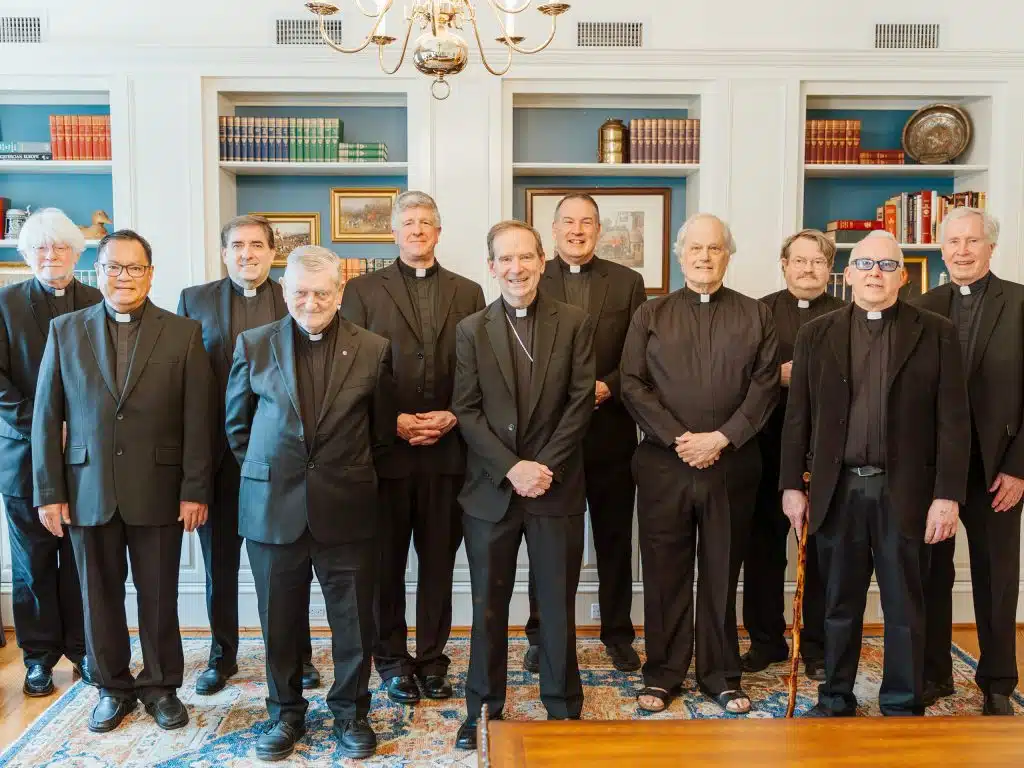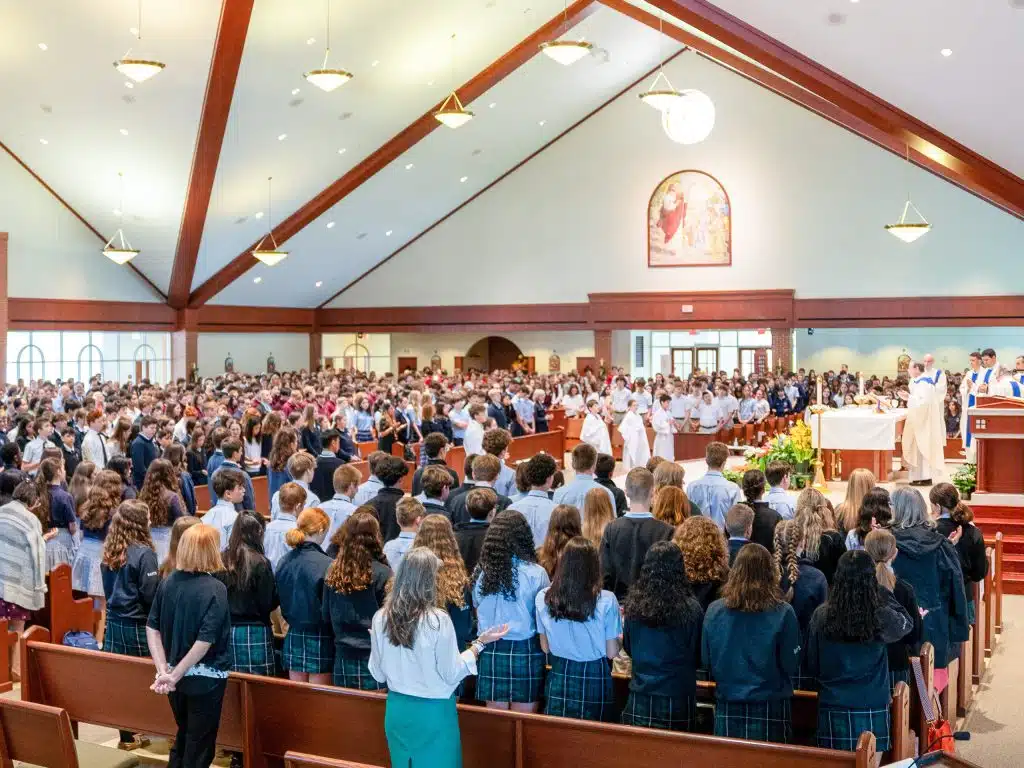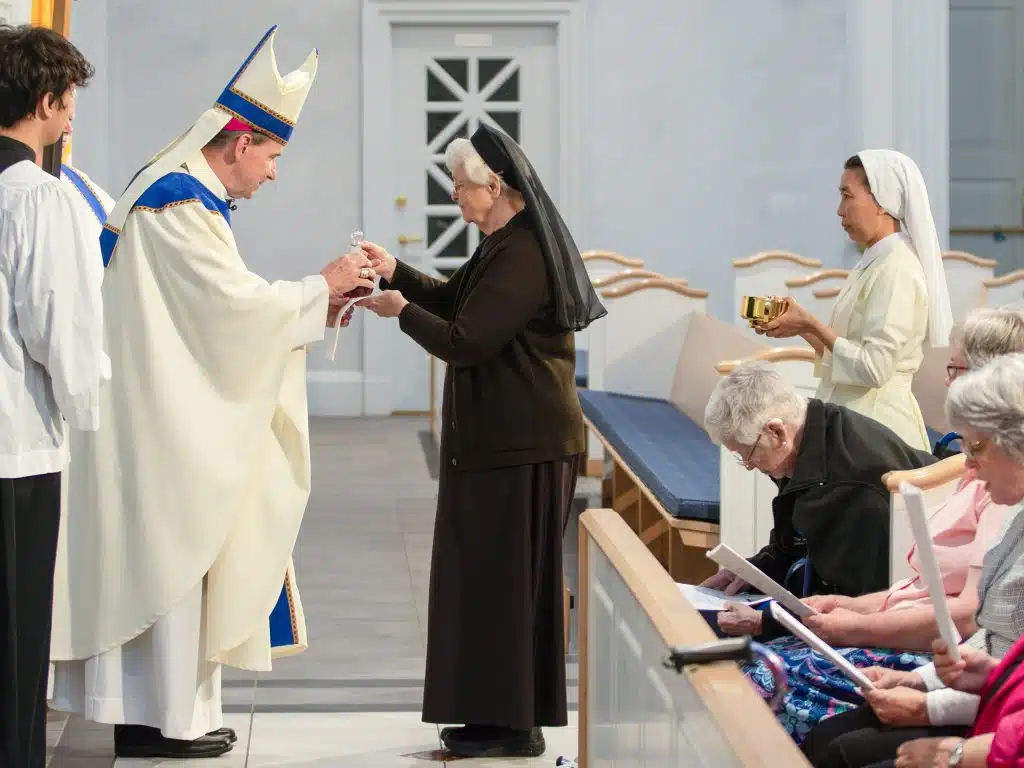What do going to an amusement park, joining a gym and buying TV dinners all have in common? According to predictive analytics, they’re all signs the person engaging in those activities may be headed toward a divorce. For years, companies have used data about consumers’ purchasing habits to predict other things, such as how they might vote or what other products they might buy. Communio, an Alexandria-based nonprofit, is using that information to save marriages.
Communio was started by J.P. De Gance, a Florida native who moved to the Washington area after college hoping to make a difference in the world through politics and public policy. A few years ago, he decided to make a difference by strengthening marriages in his new job at the Philanthropy Roundtable. “I began to realize that there were things a lot more important than politics that drive everything else and those things were really centered around the family,” said De Gance.
Philanthropy Roundtable’s project, dubbed the Culture of Freedom Initiative, made headlines when the divorce rate in Duval County, home of Jacksonville, Fla., fell 27 percent while the Culture of Freedom Initiative was active in that area, 2015-17. For comparison, the U.S. divorce rate decline was only about 6 percent during that same time. Though it’s extremely difficult to prove causation, the Institute for Family Studies reviewed the project and concluded, “It is highly plausible that some share of the large divorce decline in Jacksonville may be attributed to this initiative.”
De Gance believes part of their success came through microtargeting — identifying people whose marriages were in trouble and then inviting them to couples’ events via direct mail or Facebook ads. It’s a not-so-new, technology-based tool that can be used to evangelize.
“Predictive analytics has been around for a long time. It’s used in a lot of businesses, it just hasn’t been used in ministry,” said De Gance, a parishioner of Our Lady of Angels Church in Woodbridge. The technique more than impacted marriages — it helped churches grow. “Those churches (we worked through) started to grow 23 percent in attendance over two years and 28 percent in regular weekly giving,” he said.
After trial and error, De Gance and his team learned that sending struggling couples to join a faith-based community was more effective than having them attend marriage-strengthening events at a secular organizations such as the YMCA. So they partnered with churches to host couples events that De Gance describes as “90 percent popcorn, 10 percent spinach,” such as a trivia night or a comedy show, with free babysitting included.
Once they got people in the door, a hospitality team made them feel welcome. That personal touch was about as important as the substance of the event. “Most parishes lead with the program and we’re shocked nobody wants to come to our stuff. Like, ‘Hey we’re going to have this amazing talk on Genesis and Ephesians and the sacrament of marriage.’ We invite all the folks and the same 10 daily communicants come,” he said. “Why isn’t anybody coming? Because they’re not yet ready, we don’t yet have a relationship with them where they would have interest in that.”
At the event’s end, participants were invited to something a little meatier, such as a couples Bible study or a retreat.
But it wasn’t just non-churchgoers struggling in their marriages. By surveying people in the pews, Communio has learned that around 15 to 30 percent of couples report being dissatisfied with their marriage. Letting pastors see exactly how their congregants were struggling was critical to getting them to prioritize marriage ministry, which is typically a low priority, said De Gance. According to a study they conducted via Barna, 76 percent of Catholic parishes lack a substantive marriage ministry, and 82 percent of parishes reported they spend no money on marriage or relationships.
The Diocese of Arlington has an Office of Marriage, Family and Respect Life that sponsors marriage preparation retreats and marriage enrichment workshops and retreats. Couples facing marriage difficulties are encouraged to attend Retrovaille retreats. Parishes such as Sacred Heart of Jesus Church in Winchester and St. Elizabeth Ann Seton Church in Lake Ridge also host date night events for married couples.
After a few years, the Culture of Freedom Initiative spun off from the Philanthropy Roundtable to become Communio. A number of churches they worked with in Jacksonville now have self-sustaining marriage ministries, while many are still supported by Communio’s local partner Live the Life Ministries. Communio’s current focus is launching ministries with churches on a city-wide level, such as in Denver and Billings, Mont., and with individual churches such as Truro Anglican Church in Fairfax. In the near future, De Gance hopes to work with parishes in the Diocese of Arlington, too.
On a purely secular level, marriage is important because stable families are good for society. According to the Institute for Family Studies report, “Children from intact, married homes are more likely to flourish in school, to graduate from college, to be gainfully employed, and to steer clear of detours, such as incarceration and teen pregnancy. Men and women who get and remain stably married are much more likely to enjoy higher incomes, greater assets, and better physical and mental health.” But De Gance believes healthy marriages also are key to preserving the faith.
Data suggests that churches are losing young people because they’re losing married couples. “A 65-year-old baby boomer and a 24-year-old millennial go to church at almost the exact same rate if I know one thing about both people — if (they) grew up with a constantly married mom and dad,” said De Gance. According to the American Political and Social Behavior survey, a millennial with constantly married biological parents is 78 percent more likely to go to church every week than a millennial who doesn’t.
De Gance hopes churches put more resources into preserving faith-saving marriages. “The church is pastoring to families like it’s 1958, when the entire world was oriented around and reinforcing the lifelong commitment of marriage,” he said. “The church is heavily focused on CCD and RCIA. How do we help the church take a step beyond (that)?”
De Gance’s work with Communio has helped him see how focusing on marriages can impact couples and whole communities for the good. “Marriage is the church and society’s greatest challenge right now,” he said. “And there is no real close second.”


